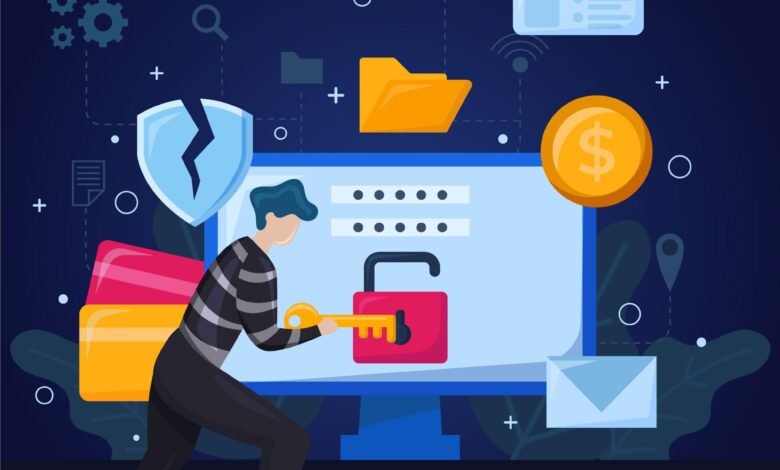How to Protect Your Privacy Online in 2025: Easy Steps Anyone Can Take

In 2025, online privacy is more critical than ever. With increasing cyber threats, data breaches, and invasive tracking technologies, protecting your personal information should be a top priority. Fortunately, you don’t need to be a tech expert to safeguard your privacy. This guide covers practical, easy-to-follow steps to keep your data secure in the digital age.
1. Use Strong, Unique Passwords & a Password Manager
Weak or reused passwords are one of the biggest security risks.
Best Practices:
- Create complex passwords (at least 12 characters, with numbers, symbols, and mixed cases).
- Never reuse passwords across different sites.
- Use a password manager like Bitwarden, 1Password, or KeePass to store and generate secure passwords.
- Enable two-factor authentication (2FA) wherever possible (SMS is better than nothing, but authenticator apps like Google Authenticator or Authy are stronger).
2. Enable Two-Factor Authentication (2FA) Everywhere
2FA adds an extra layer of security beyond just a password.
How to Set It Up:
- Use authenticator apps (Google Authenticator, Microsoft Authenticator, Authy).
- Avoid SMS-based 2FA when possible (SIM swapping attacks can bypass it).
- Consider hardware security keys (YubiKey) for high-security accounts (e.g., email, banking).
3. Browse Anonymously with a VPN
Internet service providers (ISPs), advertisers, and even governments track your online activity.
How a VPN Helps:
- Encrypts your internet traffic.
- Hides your real IP address.
- Prevents tracking by ISPs and websites.
Recommended VPNs (2025):
- ProtonVPN (no-logs, open-source)
- Mullvad (privacy-focused, anonymous payments)
- NordVPN (fast, reliable servers)
⚠️ Avoid free VPNs—many sell your data.
4. Use Privacy-Focused Browsers & Search Engines
Google Chrome and Bing track your searches and browsing habits.
Better Alternatives:
- Browsers:
- Firefox (with strict privacy settings)
- Brave (blocks ads & trackers by default)
- Tor Browser (for maximum anonymity)
- Search Engines:
- DuckDuckGo (no tracking)
- Startpage (Google results but private)
- SearX (self-hostable, decentralized)
🔹 Adjust browser settings: Disable third-party cookies, enable HTTPS-only mode, and block trackers.
5. Lock Down Your Social Media Privacy
Social networks collect vast amounts of personal data.
Steps to Protect Yourself:
- Review privacy settings (limit who sees your posts, disable ad personalization).
- Minimize sharing (avoid posting location, personal details, or sensitive info).
- Use aliases where possible (avoid real names on non-essential accounts).
6. Encrypt Your Communications
Messaging apps like SMS and Facebook Messenger are not secure.
Best Private Messaging Apps (2025):
- Signal (gold standard for encryption, open-source)
- Session (decentralized, no phone number needed)
- Element/Matrix (self-hostable, secure alternative to Slack/Discord)
🔐 Avoid WhatsApp & Telegram (default chats)—they lack end-to-end encryption in some cases.
7. Be Wary of Phishing & Scams
Cybercriminals use fake emails, texts, and websites to steal data.
How to Avoid Phishing:
- Never click suspicious links (hover to check the URL).
- Verify sender emails (look for subtle misspellings).
- Use email aliases (SimpleLogin, ProtonMail aliases) to hide your real email.
- Enable DMARC/DKIM/SPF on your email domain if you own one.
8. Secure Your Devices
Your phone and computer store sensitive data—keep them locked down.
Essential Steps:
- Enable full-disk encryption (BitLocker for Windows, FileVault for Mac).
- Keep software updated (prevents exploits).
- Use antivirus software (Malwarebytes, Bitdefender).
- Disable unnecessary permissions (mic, camera, location access).
📱 For smartphones:
- Use iOS (better privacy defaults) or GrapheneOS (Android alternative).
- Avoid installing unnecessary apps.
9. Limit Data Collection by Big Tech
Companies like Google, Meta (Facebook), and Amazon track everything you do.
How to Reduce Tracking:
- Use alternative services:
- ProtonMail instead of Gmail
- Nextcloud instead of Google Drive
- F-Droid instead of Google Play Store (for open-source apps)
- Opt out of ad tracking (Google & Facebook ad settings).
- Use burner emails for sign-ups.
10. Regularly Audit & Delete Unused Accounts
Old accounts can be hacked and expose your data.
How to Clean Up:
- Delete unused accounts (social media, old shopping sites).
- Use privacy-focused email aliases for new sign-ups.
Final Thoughts: Stay Vigilant in 2025
Privacy is an ongoing effort—new threats emerge constantly. By following these steps, you can significantly reduce your digital footprint and protect your personal information.
Quick Recap:
✅ Use strong passwords & a password manager.
✅ Enable 2FA everywhere.
✅ Browse with a VPN & privacy tools.
✅ Lock down social media & messaging apps.
✅ Stay alert for phishing scams.
✅ Secure your devices & limit data sharing.
By taking control of your online privacy today, you’ll be safer in 2025 and beyond. 🚀
